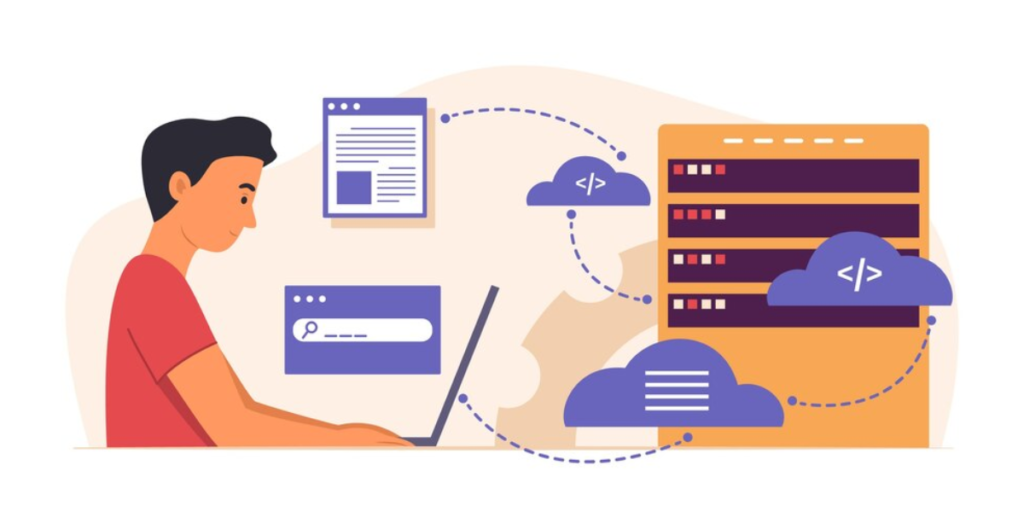Choosing the right enterprise resource planning (ERP) system is a critical decision that can significantly impact your business’s efficiency, scalability, and overall success. Among the most popular ERP solutions available today are Odoo and SAP. Both platforms offer a wide array of features and functionalities, but they cater to different needs and business sizes. In this blog, we’ll compare Odoo and SAP to help you determine which ERP system is right for you. If you’re considering an Odoo implementation company in the USA, this comparison will be particularly beneficial.
Overview of Odoo
Odoo is an open-source ERP system that offers a comprehensive suite of business applications, including CRM, e-commerce, accounting, inventory, and project management. Its modular design allows businesses to start with the basic features and expand as needed. Odoo is known for its flexibility, affordability, and user-friendly interface.
Overview of SAP
SAP, on the other hand, is a giant in the ERP market, known for its extensive and robust solutions designed for large enterprises. SAP’s ERP software, often referred to as SAP S/4HANA, offers deep integration across various business processes, including finance, supply chain, manufacturing, and human resources. SAP is recognized for its scalability, reliability, and ability to handle complex business operations.
Key Differences Between Odoo and SAP
Target Audience
- Odoo: Primarily targets small to medium-sized enterprises (SMEs) and startups. Its modular and scalable nature makes it an ideal choice for businesses looking to grow and customize their ERP system over time.
- SAP: Designed for large enterprises and multinational corporations. It excels in managing complex business processes and large-scale operations, making it suitable for organizations with extensive and diverse needs.
Cost
- Odoo: One of Odoo’s main advantages is its cost-effectiveness. The open-source version is free, and the enterprise version is reasonably priced. This makes Odoo an attractive option for SMEs and startups with limited budgets.
- SAP: Known for being more expensive, SAP requires a significant upfront investment. The total cost includes licensing fees, implementation costs, and ongoing maintenance. However, for large enterprises, the robust functionality and scalability of SAP justify the higher cost.
Implementation and Customization
- Odoo: Odoo’s implementation process is relatively straightforward, especially for small businesses. Its open-source nature allows for extensive customization, enabling businesses to tailor the system to their specific needs. Partnering with an experienced Odoo implementation company in the USA can further streamline the process and ensure optimal customization.
- SAP: Implementing SAP can be complex and time-consuming, often requiring specialized consultants. The customization options are extensive but can also be challenging due to the system’s complexity. SAP implementations are typically more suited for large enterprises with the resources to manage such projects.
User Interface
- Odoo: Known for its modern, intuitive, and user-friendly interface. Odoo’s design focuses on ease of use, which reduces the learning curve and enhances user adoption.
- SAP: While SAP’s interface is comprehensive and feature-rich, it can be overwhelming for new users. The system’s complexity often requires extensive training and support to fully utilize its capabilities.
Support and Community
- Odoo: Benefits from a large open-source community that contributes to continuous improvements and updates. Odoo also offers official support for its enterprise version, ensuring that businesses have access to the help they need.
- SAP: Provides extensive support options, including dedicated account managers, support portals, and a large network of certified consultants. The level of support is one of the reasons SAP is favored by large enterprises.
When to Choose Odoo
- Budget Constraints: If your business has limited financial resources, Odoo’s cost-effective pricing makes it a viable option.
- Scalability Needs: Odoo’s modular structure allows you to start small and expand as your business grows.
- Customization Requirements: If your business processes require a high level of customization, Odoo’s open-source nature provides the flexibility you need.
- Ease of Use: Odoo’s user-friendly interface is ideal for businesses looking for a system that can be quickly adopted by their team.
When to Choose SAP
- Large-Scale Operations: If your business is a large enterprise with complex and extensive operations, SAP’s robust features and scalability are unmatched.
- Extensive Resources: Businesses with the financial and human resources to invest in a comprehensive ERP solution will benefit from SAP’s capabilities.
- Long-Term Strategy: For organizations looking for a long-term, stable, and highly reliable ERP solution, SAP is a strong contender.
Conclusion
Both Odoo and SAP offer powerful ERP solutions, but they cater to different business needs and sizes. Odoo’s affordability, flexibility, and user-friendly design make it an excellent choice for SMEs and startups. In contrast, SAP’s robustness, scalability, and extensive support options make it ideal for large enterprises with complex operations. If you’re leaning towards Odoo and want to ensure a smooth implementation, consider partnering with an Odoo Implementation Company in the USA. Their expertise can help you tailor the system to your unique business needs and ensure a successful deployment. Ultimately, the right ERP system for your business will depend on your specific requirements, budget, and long-term goals.



More Stories
Introduction to On-Demand Food Services
Top Men’s Jeans Tips for 2024
The Transformation of Security Uniforms